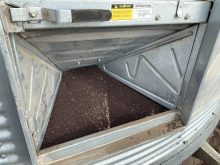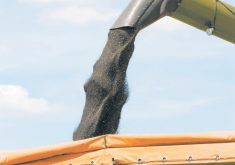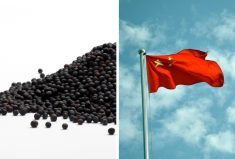Canada can’t count on past rates of growth in canola exports to China once tensions between the two countries are resolved, according to a recently published paper.
The paper, distributed by the Canadian Agri-Food Policy Institute (CAPI), concludes China is on the road to more food self-sufficiency and food import diversity. However the canola industry itself is more hopeful.
“We cannot predict when and how this current issue will be resolved, but what I will say is we have been facing issues like this for many years and we have overcome those issues in the past,” Brian Innes, the canola council’s vice-president of communications, said in an interview.
Read Also

New rules for organic farming on the table
Canada’s organic farmers have until July 29 to comment on new standards that would allow permit more products, but also crack down on organic management lapses.
Innes said the current issue is very serious and has had a major impact on the sector. He says it will take significant focus from government to resolve. He insisted that other past issues have been resolved, including those with China, and that the sector would continue to work to resolve this one.
He also pointed out that despite the headlines there were record agri-food exports, including canola, in 2018.
“We will continue to have a strong industry based on exports going forward,” Innes said.
“As a canola industry we’ve been engaged for more than a decade — probably for much longer than that — on market access issue and we’ve had a formal plan to deal with market access issues since 2011.
Canadian Canola Growers Association CEO Rick White is optimistic too.
“Demand is still very strong in that country for high quality canola, which we have lots of,” he said in an interview.
“China will come back in their own time.”
In the meantime, under World Trade Organization rules China must demonstrate its phytosanitary complaint blocking Canadian canola imports is legitimate, White said
But Canada should not to escalate trade tensions, making finding a resolution harder, he said.
“China needs a path to find their way back and save face,” he said. “I don’t know what that path looks like, but the logical one is to sit down and have a good discussion about the science behind the quality concerns that they have.”




















